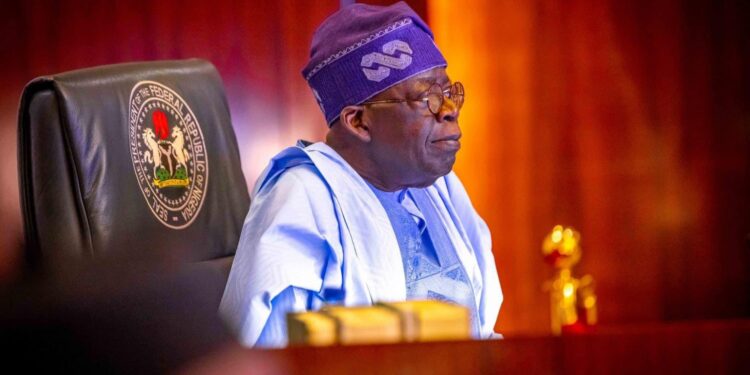President Bola Tinubu has proposed an ambitious N49.7 trillion budget for 2025, prioritizing defence, infrastructure, and human capital development. Dubbed the “Budget of Restoration: Securing Peace, Rebuilding Prosperity,” the plan includes a projected N13.39 trillion deficit, which will be financed through borrowing.
Speaking at the National Assembly, Tinubu reaffirmed his administration’s focus on strengthening security and revamping infrastructure. Defence and security will receive N4.91 trillion, while infrastructure is allocated N4.06 trillion for major projects, including the Lagos-Calabar Coastal Highway and Sokoto-Badagry Highway.
Education and healthcare also feature prominently, with N3.52 trillion allocated to education—covering Universal Basic Education and new higher institutions—and N2.48 trillion for healthcare to bolster public hospitals and essential drug supply.
Tinubu expressed optimism about reducing inflation from 34.6% to 15% and strengthening the naira to N1,500 per dollar, supported by an anticipated oil production increase to 2.06 million barrels per day. Despite the ambitious targets, he acknowledged challenges such as inflation and insecurity, emphasizing that ongoing reforms are key to economic recovery.
The proposal projects N34.82 trillion in revenue, leaving a 3.89% GDP deficit. Debt servicing is set at N15.81 trillion, reflecting concerns about Nigeria’s growing debt burden. Tinubu described the budget as a roadmap to national renewal, calling for collective efforts to address pressing challenges and ensure sustainable growth.
Reactions and Criticisms
Lawmakers praised the budget for its focus on critical sectors but urged the government to improve revenue generation to reduce borrowing. Senator JimIsah Jibrin stressed the importance of avoiding a “debt peonage system,” while Senator Victor Umeh lauded the emphasis on security and infrastructure.
Opposition Response: The Peoples Democratic Party (PDP) criticized the budget as unrealistic and anti-people, claiming it neglects critical sectors like agriculture, energy, and small enterprises. They accused Tinubu of presenting “bogus performance claims” without clear mechanisms to address key economic challenges.
Legislative Action
The National Assembly has begun deliberating the budget proposal, with plans to extend the capital component of the 2024 budget to June 2025. Lawmakers also moved to exclude 24 ministries, departments, and agencies (MDAs) from the 2025 budget due to non-compliance with financial accountability requirements.
Closing Notes
The 2025 budget underscores the Tinubu administration’s focus on securing peace, rebuilding prosperity, and driving economic transformation. However, its success hinges on effective implementation, transparency, and public-private collaboration to address Nigeria’s socio-economic challenges.
























